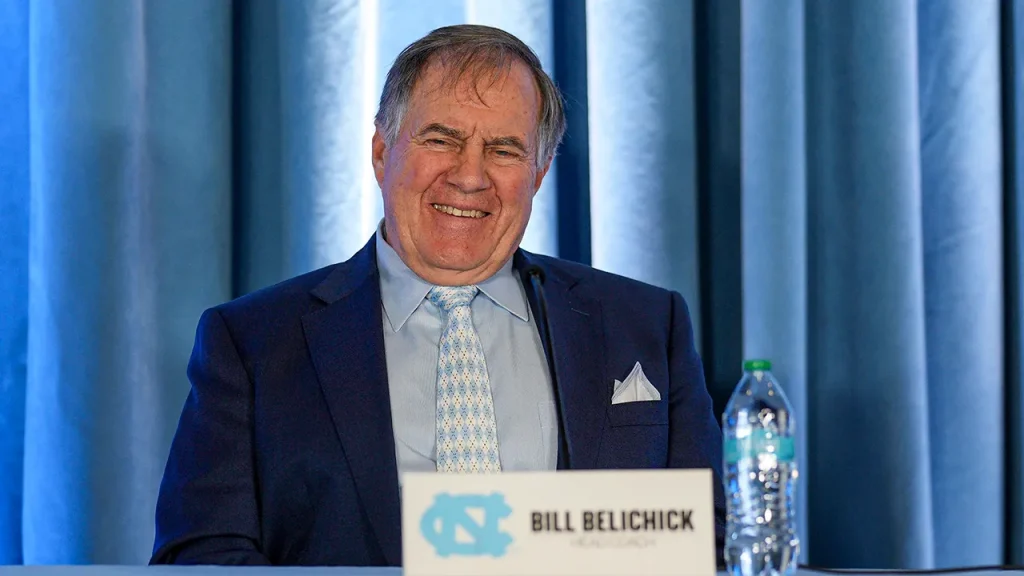Bill Belichick’s surprising transition from the NFL to college football has been met with intrigue and anticipation, particularly concerning his ability to navigate the uncharted waters of NIL-era recruiting. However, the legendary coach appears to be adapting seamlessly, quickly assembling a promising roster for his inaugural season at the helm of the UNC Tar Heels. His experience and approach, honed over decades in professional football, are proving invaluable as he tackles the unique challenges of college recruitment.
Belichick likens the college recruiting landscape, particularly with the advent of the transfer portal, to the combined frenzy of the NFL post-draft and free agency periods. This fast-paced environment, while new to the college scene, bears similarities to the roster-building processes Belichick mastered in the NFL, allowing him to leverage his existing expertise. He and UNC General Manager Mike Lombardi are working tirelessly to evaluate players, establish connections, and build a competitive team for the 2025 season. This rapid-fire approach, necessitated by the fluid nature of the transfer portal, requires swift decision-making and a keen eye for talent.
Rather than solely selling the UNC program to prospective players, Belichick finds himself in the enviable position of being actively sought out by athletes and agents. Many players, eager to be part of a program led by a coaching icon, are proactively reaching out to express their interest in joining the Tar Heels. This dynamic underscores the significant pull of Belichick’s reputation and the allure of playing under his tutelage. Furthermore, the established relationships Belichick cultivated with agents during his NFL tenure are now proving beneficial in the college arena, facilitating communication and streamlining the recruitment process.
This preemptive interest from players and agents provides Belichick with a distinct advantage, allowing him to strategically select athletes who are not only talented but also highly motivated to contribute to the program’s success. This proactive approach from potential recruits contrasts with the traditional recruitment model where coaches typically initiate contact and spend considerable effort persuading players to join their team. Belichick’s reputation and the prestige of playing under his leadership are proving to be powerful magnets, attracting a wealth of talent eager to be part of the new era of UNC football.
While assembling a competitive roster is paramount, Belichick is also simultaneously engaged in constructing his coaching staff and evaluating the existing UNC player pool. This multi-pronged approach requires meticulous planning and efficient execution, especially given the head start other programs with established coaching staffs have in the recruiting cycle. However, despite the compressed timeframe and the learning curve inherent in transitioning to college football, Belichick has already secured a commitment from a top quarterback prospect, Bryce Baker, and continues to attract other potential key players.
The addition of Bryce Baker, a four-star recruit, signals Belichick’s commitment to building a strong foundation for the Tar Heels’ future. Introducing Baker at a UNC basketball game alongside Belichick demonstrates the program’s enthusiasm and underscores the quarterback’s significance to the team’s rebuilding efforts. With several other three-star recruits already committed, and more potential signings on the horizon, Belichick is rapidly shaping a roster that holds promise for future success. Despite the challenges, the early signs indicate that Belichick’s transition to college football is progressing smoothly and effectively.















